October 9, 2018 •
North Carolina Proposed Constitutional Amendment Concerns Board of Elections and Ethics Enforcement
North Carolina will vote on a constitutional amendment to establish an eight-member Bipartisan Board of Elections and Ethics Enforcement in November. A 2017 law establishing an eight-member board was struck down by the North Carolina Supreme Court because it reduced […]
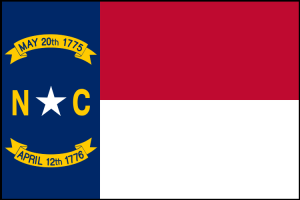 North Carolina will vote on a constitutional amendment to establish an eight-member Bipartisan Board of Elections and Ethics Enforcement in November.
North Carolina will vote on a constitutional amendment to establish an eight-member Bipartisan Board of Elections and Ethics Enforcement in November.
A 2017 law establishing an eight-member board was struck down by the North Carolina Supreme Court because it reduced the governor’s executive authority and failed to provide representation for unaffiliated voters.
If the amendment passes, majority and minority leaders of the legislature would nominate potential members from which the governor would choose.
September 24, 2018 •
North Carolina to Hold Special Session for Hurricane Recovery
This week, North Carolina Gov. Roy Cooper issued a call for a special session of the state’s legislature to address damage done by Hurricane Florence. Gov. Cooper intends to call lawmakers back to work on Tuesday, October 2, 2018, to […]
 This week, North Carolina Gov. Roy Cooper issued a call for a special session of the state’s legislature to address damage done by Hurricane Florence.
This week, North Carolina Gov. Roy Cooper issued a call for a special session of the state’s legislature to address damage done by Hurricane Florence.
Gov. Cooper intends to call lawmakers back to work on Tuesday, October 2, 2018, to get state funding approved for recovery efforts.
An official proclamation for the special session has not yet been issued but it is expected in coming weeks.
This will be the third special session called to address hurricane damage in the state’s history.
September 20, 2018 •
North Carolina Extends Due Date of September Report
The North Carolina State Board of Ethics (NCSBE) released a statement this week extending the due date of September lobbyist and principal monthly expense report. The report, originally due on September 14, 2018, will now be due on September 21, […]
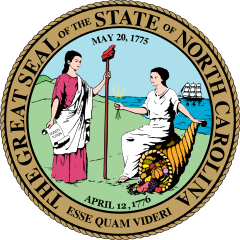 The North Carolina State Board of Ethics (NCSBE) released a statement this week extending the due date of September lobbyist and principal monthly expense report.
The North Carolina State Board of Ethics (NCSBE) released a statement this week extending the due date of September lobbyist and principal monthly expense report.
The report, originally due on September 14, 2018, will now be due on September 21, 2018 because of the effects of Hurricane Florence.
If the extended deadline still cannot be met because of the hurricane, contact the NCSBE.
The monthly report is due only if a lobbyist or principal incurred reportable expenditures in the month of August.
August 24, 2018 •
North Carolina Begins Second Special Session
The North Carolina General Assembly was called into special session yesterday to begin today, August 24, in order rewrite ballot amendment language to shift appointment powers from the governor to the Legislature. Speaker Tim Moore said legislators plan to make […]
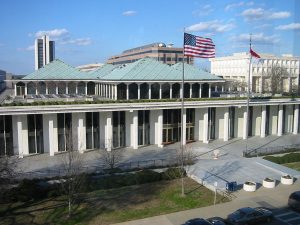 The North Carolina General Assembly was called into special session yesterday to begin today, August 24, in order rewrite ballot amendment language to shift appointment powers from the governor to the Legislature.
The North Carolina General Assembly was called into special session yesterday to begin today, August 24, in order rewrite ballot amendment language to shift appointment powers from the governor to the Legislature.
Speaker Tim Moore said legislators plan to make revisions “because the proposals provide a popular bipartisan balance in our state government that will benefit the people of North Carolina.”
This is the second special session this summer to address the ballot language.
August 23, 2018 •
North Carolina Legislators Mull Special Session
Republican legislative leaders in North Carolina are considering coming back to Raleigh to rewrite two ballot questions because a court blocked them from being voted on in November. Gov. Roy Cooper and the NAACP took issue with the ballot language, […]
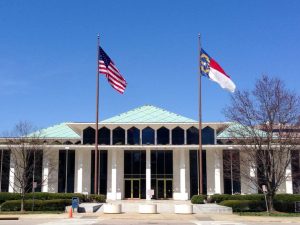 Republican legislative leaders in North Carolina are considering coming back to Raleigh to rewrite two ballot questions because a court blocked them from being voted on in November.
Republican legislative leaders in North Carolina are considering coming back to Raleigh to rewrite two ballot questions because a court blocked them from being voted on in November.
Gov. Roy Cooper and the NAACP took issue with the ballot language, and the court ruled in their favor, agreeing the language was unclear.
Legislative leaders, among others in the case, have filed appeals motions.
July 24, 2018 •
North Carolina Lawmakers Convene Special Session
North Carolina lawmakers began a special session today after leadership in the General Assembly hastily announced it yesterday afternoon. The official proclamation states the purpose of the session is “to consider bills concerning any matters the General Assembly wishes to […]
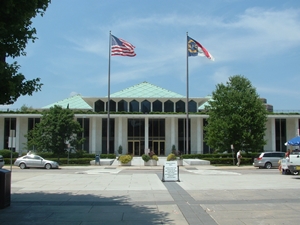 North Carolina lawmakers began a special session today after leadership in the General Assembly hastily announced it yesterday afternoon.
North Carolina lawmakers began a special session today after leadership in the General Assembly hastily announced it yesterday afternoon.
The official proclamation states the purpose of the session is “to consider bills concerning any matters the General Assembly wishes to consider.”
It is anticipated Republican lawmakers will use this special session to pass bills that will impact how six constitutional amendments proposed by the Legislature appear on the ballot.
July 6, 2018 •
North Carolina Legislature Makes Power Grab for Elections and Ethics Board Appointments
After receiving at least three-fifths of the vote in each chamber, the North Carolina Senate gave final approval to a proposed constitutional amendment to alter the way the State Board of Elections and Ethics Enforcement is appointed. The proposal switches […]
 After receiving at least three-fifths of the vote in each chamber, the North Carolina Senate gave final approval to a proposed constitutional amendment to alter the way the State Board of Elections and Ethics Enforcement is appointed.
After receiving at least three-fifths of the vote in each chamber, the North Carolina Senate gave final approval to a proposed constitutional amendment to alter the way the State Board of Elections and Ethics Enforcement is appointed.
The proposal switches the power to make appointments to the board from the governor to the Legislature.
Previously, Democratic Gov. Roy Cooper had sued Republican legislative leaders multiple times over legislation creating different versions of the joint board.
The amendment requires a simple majority at the ballot box to become effective on January 1, 2019.
July 2, 2018 •
North Carolina State Senator Resigns
State Sen. David Curtis resigned Saturday, the day after the General Assembly completed its chief annual work session. Curtis lost his seat in the May primary to Ted Alexander in the Republican primary election. Republican leaders in Lincoln, Gaston, and […]
 State Sen. David Curtis resigned Saturday, the day after the General Assembly completed its chief annual work session.
State Sen. David Curtis resigned Saturday, the day after the General Assembly completed its chief annual work session.
Curtis lost his seat in the May primary to Ted Alexander in the Republican primary election.
Republican leaders in Lincoln, Gaston, and Iredell counties will have to select someone to fill the remainder of Curtis’s two-year term.
July 2, 2018 •
North Carolina Legislature Adjourns
The North Carolina Legislature adjourned on June 29, 2018. The Republican-controlled General Assembly spent most of the session passing budget adjustments and overrode eight of Gov. Roy Cooper’s 10 vetoes. Senate Bill 655 was passed and signed by Gov. Cooper […]
 The North Carolina Legislature adjourned on June 29, 2018.
The North Carolina Legislature adjourned on June 29, 2018.
The Republican-controlled General Assembly spent most of the session passing budget adjustments and overrode eight of Gov. Roy Cooper’s 10 vetoes.
Senate Bill 655 was passed and signed by Gov. Cooper last week. The bill changes the date primary elections are held from May to March and is effective January 1, 2019.
The Legislature is sending a voter photo identification mandate to be decided by voters in November.
Lawmakers are scheduled to reconvene on November 27, 2018.
North Carolina Gov. Roy Cooper will appoint members to the State Board of Elections and Ethics Enforcement while litigation over the structure of the board is pending. The Democratic governor has sued Republican legislative leaders three times over legislation creating […]
 North Carolina Gov. Roy Cooper will appoint members to the State Board of Elections and Ethics Enforcement while litigation over the structure of the board is pending.
North Carolina Gov. Roy Cooper will appoint members to the State Board of Elections and Ethics Enforcement while litigation over the structure of the board is pending.
The Democratic governor has sued Republican legislative leaders three times over legislation creating different versions of the joint board. The latest lawsuit was filed by the governor on March 13.
Cooper won the two previous lawsuits over versions creating an eight-member board comprised of four Democrats and four Republicans. He sued again, arguing the now nine-member board still prevents him from having control over carrying out elections laws.
A state board administering elections and campaign finance laws has been vacant since last June while the constitutionality of the joint board has been litigated.
March 8, 2018 •
Judges Rule on Bipartisan North Carolina Elections-Ethics Board
A North Carolina Superior Court three-judge panel kept in place the recently merged bipartisan state board of elections and ethics enforcement but voided a portion of the law regulating how members would be appointed to that board. The ruling was […]
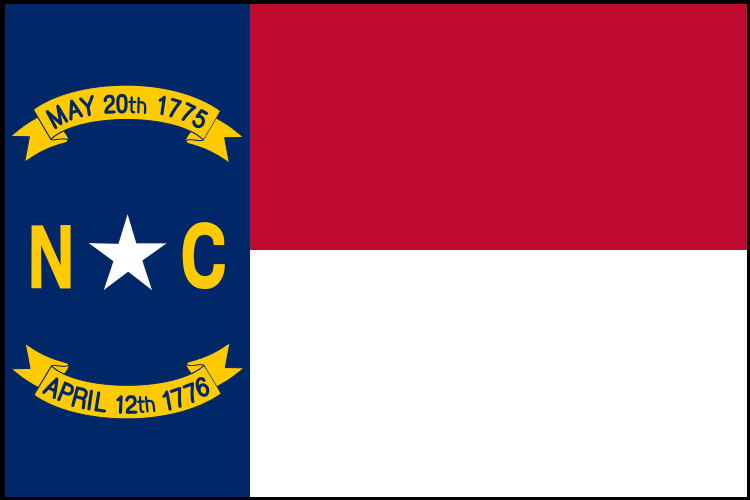 A North Carolina Superior Court three-judge panel kept in place the recently merged bipartisan state board of elections and ethics enforcement but voided a portion of the law regulating how members would be appointed to that board.
A North Carolina Superior Court three-judge panel kept in place the recently merged bipartisan state board of elections and ethics enforcement but voided a portion of the law regulating how members would be appointed to that board.
The ruling was in response to a mandate from the North Carolina Supreme Court after they held the membership of and appointment to the bipartisan board was a separation of powers violation.
In response to the Supreme Court’s holding, lawmakers passed House Bill 90 giving the governor the authority to fire any member of the board, so long as he fills the spot with a member from the same party. The bill also allows the governor to appoint a ninth, unaffiliated member, to avoid deadlock.
Gov. Cooper said publicly he would let House Bill 90 become law without his signature, despite his disagreement with it.
Additionally, he has filed a motion with the North Carolina Supreme Court challenging the three-judge panel’s decision and seeking clarity regarding the scope of the Supreme Court’s January holding, which affects the validity of House Bill 90 if it becomes law.
February 15, 2018 •
North Carolina General Assembly Adjourns Legislative Session
The North Carolina General Assembly adjourned its reconvened session on Tuesday, February 13. Lawmakers passed a single piece of legislation, House Bill 90. The bill reduces class-sizes for kindergarten through third grade in addition to changing the makeup of the […]
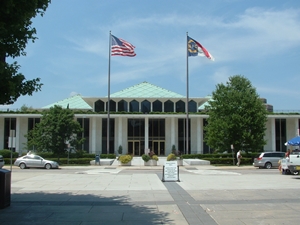 The North Carolina General Assembly adjourned its reconvened session on Tuesday, February 13. Lawmakers passed a single piece of legislation, House Bill 90.
The North Carolina General Assembly adjourned its reconvened session on Tuesday, February 13. Lawmakers passed a single piece of legislation, House Bill 90.
The bill reduces class-sizes for kindergarten through third grade in addition to changing the makeup of the elections and ethics board.
Last month, the North Carolina Supreme Court struck down the board, which was supposed to be comprised of four Democrats and four Republicans.
The bill would add a ninth board member who could be neither a Democrat nor a Republican.
Gov. Cooper has 30 days to sign, veto, or let the bill become law without his signature.
January 29, 2018 •
North Carolina Supreme Court Rules on Law Merging Ethics and Elections Board
The North Carolina Supreme Court struck down a 2017 law overhauling the state’s Elections Board and Ethics Commission. Session Law 2017-6 merged the existing state Board of Elections and state Ethics Commission and created the new Bipartisan State Board of […]
 The North Carolina Supreme Court struck down a 2017 law overhauling the state’s Elections Board and Ethics Commission. Session Law 2017-6 merged the existing state Board of Elections and state Ethics Commission and created the new Bipartisan State Board of Elections and Ethics Enforcement.
The North Carolina Supreme Court struck down a 2017 law overhauling the state’s Elections Board and Ethics Commission. Session Law 2017-6 merged the existing state Board of Elections and state Ethics Commission and created the new Bipartisan State Board of Elections and Ethics Enforcement.
The court held provisions in the law concerning the membership of and appointments to new bipartisan state board constituted a separation of powers violation.
Although the office functions of the ethics commission and elections boards merged last year, Gov. Roy Cooper did not make any appointments to the new board while this lawsuit made its way through the courts.
January 8, 2018 •
North Carolina Special Session to Convene on January 10
The North Carolina General Assembly will convene for a special session on January 10 to address several topics, including judicial reform. Lawmakers may consider eliminating judicial elections and instead institute an appointment process for selecting judges.
 The North Carolina General Assembly will convene for a special session on January 10 to address several topics, including judicial reform.
The North Carolina General Assembly will convene for a special session on January 10 to address several topics, including judicial reform.
Lawmakers may consider eliminating judicial elections and instead institute an appointment process for selecting judges.
State and Federal Communications, Inc. provides research and consulting services for government relations professionals on lobbying laws, procurement lobbying laws, political contribution laws in the United States and Canada. Learn more by visiting stateandfed.com.


